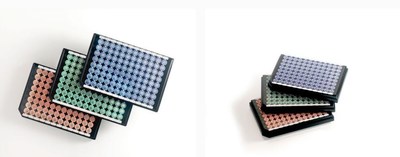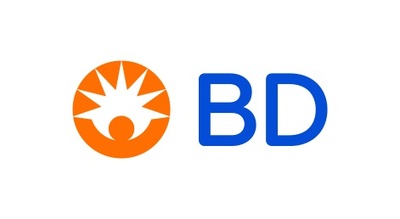BD Announces Industry-First CE Marked Assay for HPV Screening from At-Home Self-Collected Vaginal Samples
BD (Becton, Dickinson and Company) announced a significant milestone with the CE marking of the industry's first self-collection HPV screening assay. This advancement allows laboratories to process samples collected by patients themselves using BD's Onclarity™ HPV Assay, enhancing accessibility for women hesitant to undergo clinical screening. Approximately 61,000 women are diagnosed with cervical cancer in Europe annually, highlighting an urgent need for improved screening strategies, especially post-COVID-19. The assay detects 14 high-risk HPV types, contributing to more effective cervical cancer prevention efforts.
- First self-collection HPV screening assay CE marked, enhancing patient accessibility.
- Assay detects 14 high-risk HPV types, improving diagnostic capabilities.
- Addresses public health need for cervical cancer screening post-COVID-19.
- None.
Insights
Analyzing...
FRANKLIN LAKES, N.J., May 13, 2021 /PRNewswire/ -- BD (Becton, Dickinson and Company) (NYSE: BDX), a leading global medical technology company, today announced the industry's first self-collection claim for HPV screening has been CE marked to the IVD directive 98/79/EC.
The new claim allows laboratories and facilities to process self-collected samples via a BD diluent tube using the BD Onclarity™ HPV Assay on either the BD Viper™ LT or the BD COR™ System. The BD Viper™ LT is in use globally and the BD COR™ System, launched last year, is in use across Europe.
"The goal of cervical cancer screening is simple but critical: to detect pre-cancer before it develops into cancer," stated Dr. Jeff Andrews, vice president of Global Medical Affairs at BD. "Not only does self-collection afford women greater access to testing, but they may also feel confident that the reliability of HPV testing of self-collected samples is the same as if they went to a cliniciani."
At-home collection will help address the urgent public health challenge of reaching women who do not attend routine cervical cancer screening. Over half of all cervical cancers are diagnosed in women who have never been screened or have not been screened in the previous five yearsii, a situation that has been compounded by the recent global pandemic.
Persistent infection with HPV is the cause of virtually all cases of cervical canceriii. Current estimates indicate that every year in Europe, more than 61,000 women are diagnosed with cervical cancer and nearly 26,000 die from the disease,iv making cervical cancer the second-most common female cancer deaths in women aged 15 to 44 and the ninth-most frequent cancer among women overall.iii
The BD Onclarity™ HPV Assay detects and identifies 14 high-risk human papillomavirus (HPV) types in a single analysis and provides genotyping information from specimens collected for cervical cancer screening purposes. The BD Onclarity™ HPV Assay includes genotype reporting beyond HPV genotypes 16, 18, and 45 to include types 31, 51, 52, 33/58, 35/39/68 and 56/59/66.
In late 2020, the World Health Organization (WHO) launched its Global Strategy to Accelerate the Elimination of Cervical Cancer, recognizing the potential for a three-pronged approach of vaccination, screening, and treatment to virtually eliminate cervical cancerv. The European Union has set a goal to introduce "organized population-based HPV-based screening and achieve
"Adding HPV self-sampling to any cervical cancer prevention effort is close to a silver bullet; it's simple, easy and safe for women, and equals doctor-collected samples in diagnostic quality," said Jesper Bonde, PhD, Senior Researcher and Molecular Pathology Laboratory Manager, Hvidovre Hospital, Denmarkvii. "HPV self-sampling makes screening accessible to women who don't participate in screening or have limited access to screening."
He further added that, "Combining HPV self-sampling with extended genotyping allows for focus on those women at highest risk while not overtreating those at very low risk. Screening strategies, including at-home self-collection, that employ HPV tests with simultaneous genotyping offer a simple way to improve cervical cancer screening to the benefit of the woman and health care providers both by allowing risk stratification directly on the screening sample."
Cervical cancer screening has been very effective at reducing morbidity and mortality from disease but participation in screening programs varies widely across the Europe ranging from
"There has been a considerable drop in cervical cancer screening due to COVID-19ix," said Brooke Story, president of Integrated Diagnostic Solutions at BD. "As a woman, I can say that a fear of exposure to COVID has impacted my own preventive health behavior, so I recognize both professionally and personally the value of having an easy, convenient and private self-collection process for HPV screening available."
About BD Onclarity™ HPV Assay
The BD Onclarity™ HPV Assay detects and identifies 14 high-risk human papillomavirus (HPV) types in a single analysis and provides genotyping information from specimens collected for cervical cancer screening purposes in the BD SurePath™ Collection Vial and in the Hologic PreservCyt® Solution (not approved in the United States), as well as in the Cervical Brush Diluent tube (not approved in the United States). The assay is for use in accordance with clinical guidelines and within the scope of local regulatory authorizations as part of a comprehensive approach to cervical cancer screening. The BD Onclarity™ HPV Assay has FDA approval for clinical use in cytology-based screening with ASC-US triage, in co-testing paradigm, and in primary HPV screening. BD Onclarity™ HPV Assay has FDA approval for use in vaccinated women. As the previously vaccinated subpopulation ages, the screening population will progressively include women with reduced prevalence of HPV 16 and 18, increasing the value of extended genotype reporting in a mixed population of vaccinated and unvaccinated womenx. Visit bd.com and advancing-diagnostics.eu to learn more.
About BD
BD is one of the largest global medical technology companies in the world and is advancing the world of health by improving medical discovery, diagnostics and the delivery of care. The company supports the heroes on the frontlines of health care by developing innovative technology, services and solutions that help advance both clinical therapy for patients and clinical process for health care providers. BD and its 70,000 employees have a passion and commitment to help enhance the safety and efficiency of clinicians' care delivery process, enable laboratory scientists to accurately detect disease and advance researchers' capabilities to develop the next generation of diagnostics and therapeutics. BD has a presence in virtually every country and partners with organizations around the world to address some of the most challenging global health issues. By working in close collaboration with customers, BD can help enhance outcomes, lower costs, increase efficiencies, improve safety and expand access to health care. For more information on BD, please visit bd.com or connect with us on LinkedIn at www.linkedin.com/company/bd1/ and Twitter @BDandCo.
Contacts: | |
Media: | Investors: |
Troy Kirkpatrick | Kristen M. Stewart, CFA |
VP, Public Relations | SVP, Strategy & Investor Relations |
858.617.2361 | 201.847.5378 |
BD Onclarity™ HPV Assay, BD SurePath™ Collection Vial, BD Viper™ LT and BD COR™ Systems are in vitro diagnostic medical device bearing a mark. BD, the BD Logo, BD COR, BD SurePath, BD Viper and Onclarity are trademarks of Becton, Dickinson and Company or its affiliates. © 2021 BD. All rights reserved.
i Arbyn, M. et al. (2018) Detecting cervical precancer and reaching underscreened women by using HPV testing on self samples: updated meta-analyses. Bmj 363, k4823; Cadman, L. et al. (2021) A randomised comparison of different vaginal self-sampling devices and urine for human papillomavirus testing - Predictors 5.1. Cancer Epidemiol Biomarkers Prev Published Online First on January 29, 2021; DOI: 10.1158/1055-9965.EPI-20-1226; Rohner, E. et al. (2020) Test Accuracy of Human Papillomavirus in Urine for Detection of Cervical Intraepithelial Neoplasia. J Clin Microbiol 58 (3)
ii CDC. Cervical Cancer is Preventable. 2014. https://www.cdc.gov/vitalsigns/cervical-cancer/index.html
(Last accessed 3/23/2021)
iii Walboomers J, Jacobs M, Manos M et al. Human papillomavirus is a necessary cause of invasive cervical cancer worldwide. J Pathol. 1999;189(1):12-19.
iv Cervical Cancer Prevention Policy Atlas (EPF) 2020 https://www.epfweb.org/node/504#:~:text=Current%20estimates%20indicate%20that%20every,aged%
v https://www.who.int/news/item/17-11-2020-a-cervical-cancer-free-future-first-ever-global-commitment-to-eliminate-a-cancer
vi Arbyn M. et al. (2021) The European response to the WHO call to eliminate cervical cancer as a public health problem. Int. J. Cancer. 2021;148:277–284.
vii Bonde, J. H.,et al. (2020) Clinical Utility of Human Papillomavirus Genotyping in Cervical Cancer Screening: A Systematic Review. J Low Genit Tract Dis 24, 1-13, doi:10.1097/LGT.0000000000000494 (2020).
viii Basu, P. et al. (2018) Status of implementation and organization of cancer screening in The European Union Member States-Summary results from the second European screening report. Int.J.Cancer:142, 44-56.
ix Lim, A.W.W. (2021) Will COVID-19 Be the Tipping Point for Primary HPV Self-sampling? Cancer Epidemiol Biomarkers Prev 30 (2), 245-247
x Wright, T. C., Jr. et al. HPV infections and cytologic abnormalities in vaccinated women 21-34years of age: Results from the baseline phase of the Onclarity trial. Gynecologic oncology 153 (2019) 259 - 265
![]() View original content to download multimedia:http://www.prnewswire.com/news-releases/bd-announces-industry-first-ce-marked-assay-for-hpv-screening-from-at-home-self-collected-vaginal-samples-301290462.html
View original content to download multimedia:http://www.prnewswire.com/news-releases/bd-announces-industry-first-ce-marked-assay-for-hpv-screening-from-at-home-self-collected-vaginal-samples-301290462.html
SOURCE BD (Becton, Dickinson and Company)









